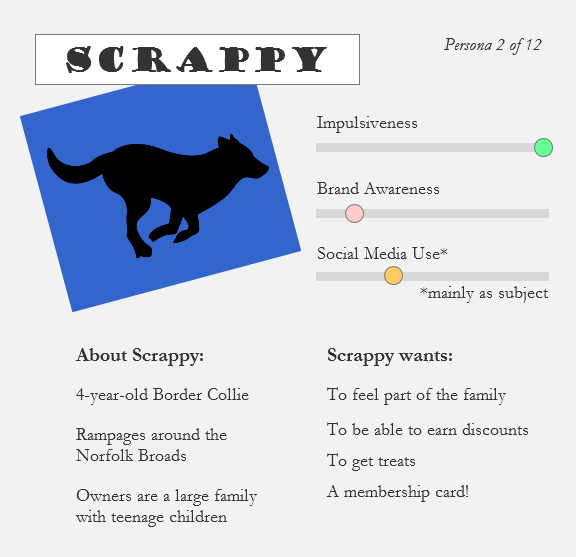People are complicated - sometimes infuriatingly and irrationally so. But that's who we are and its also pretty magical. If we thought and acted like machines, there would be no need to design interfaces - but more than that life would be a tad dull. We would just hook ourselves in and go. But the truth is (luckily for all of us, but especially UX people) is that us and machines are chalk and cheese.
It means we have a lot of work to do - understanding how people interact with and relate to digital products and services. The irony is that the people with the tech knowledge, and the people with the domain knowledge, are the least appropriate people to design the customer experience. They know too much. Anything that involves people in some way benefits from speaking directly with them to find out how they behave right now, how they think, and what that means they might need.
How projects begin
Often it is just an idea. As humans we have a surplus of ideas, which is an amazing quality and privilege. The problem in the real world is how to choose one and invest in it with confidence. Unless you are Google, you can't invest billions in ideas - you will have to choose a handful to run with. You have to use your 'cognitive surplus' wisely to progress.
This is what research does for you. It doesn't judge your ideas, it tests them and gives real results. On top of that, new ideas will emerge from the edges of a broader problem space.
The results immediately tell you if you are way off the mark. If you're on the right track it can tell you specifics - what to prioritise, how to write copy, and how to engage and motivate users.
This week, my new LinkedIn skill is... Pet Detective
Years ago, a stakeholder sitting on the fringes of a client's digital team had an idea - "all our current members have membership cards, their children have membership cards - but what about their pets? Wouldn't it be fantastic if all of their pets had membership cards? Surely that's what users want, isn't it? Well I don't know - probably. Yes, they do, we'll make sure they do."
Without research - this is the sort of conversation you will have (or overhear and then be confronted with Dog Personas faster than you can say Woof). 'If we have data, let's go with the data; if all we have are opinions, let's go with mine'. The 'mine' in that sentence will often be the boss - in other words, the 'HiPPO' (Highest Paid Person's Opinion). It should be the other way around - your organisation should have a surplus of evidence to inform your decisions about your services and customer interactions with them. This means there is no room for uninformed opinion.

Back to Dog Personas. Maybe pet membership cards are a stroke of genius. Maybe pet owners love it and it allows your brand to hijack some of that special bond between owner and pet and start building lasting relationships with customers. Or maybe it will annoy both owners and non-owners, and cost you a fortune in development and reputation. Research saves you this enormous risk and shows you the difference between those results.
Personas (probably human ones) can be one output of research. Reports are another. But what you're really looking for are those headlines to take to your boss and say "We're thinking about this all wrong. Users need [x]." That could be an outcome, a feature, a service, an emotion. Anything - but without evidence it cannot be argued for effectively (trust me).
No-nonsense research
Direct user research can involve just observing people (ethnography), speaking in-depth with users (interviews), a bit of both, or testing an existing product or prototype. There are several exercises and techniques that we use within these services to get the best out of each session. Indirect user research is anything that is one step removed – mostly quantitative exercises such as surveys, analytics data or social media monitoring.
Our advice is that if you are doing any research at all – then involve at least some direct qualitative research. Do not rely solely on quantitative data as without knowing any of the ‘why’ you will be at risk of steering off in the wrong direction.
We may spend a few days on interviews, or we may spend a few weeks for a more in-depth study. In either case we use the research straight away to make decisions and generate ideas with you. We may also run further research later in the project to test some of those ideas – perhaps using a prototype.
Qualitative research is the perfect accompaniment to data. Data gives you a lot of information about what people are doing, and fairly cheaply. But you'll have to make assumptions about why - and you'll certainly never discover where the next big opportunity is just with quantitative data. In our experience, user motivations are different to what the business thinks they are – and are also different to what the business motivations are. The companies that recognise this are the ones that tend to flourish in this digital age.
What don't you know about your audience? What sort of insights do you need to see the next big change? Get in touch with us to find out how you can get it done.


